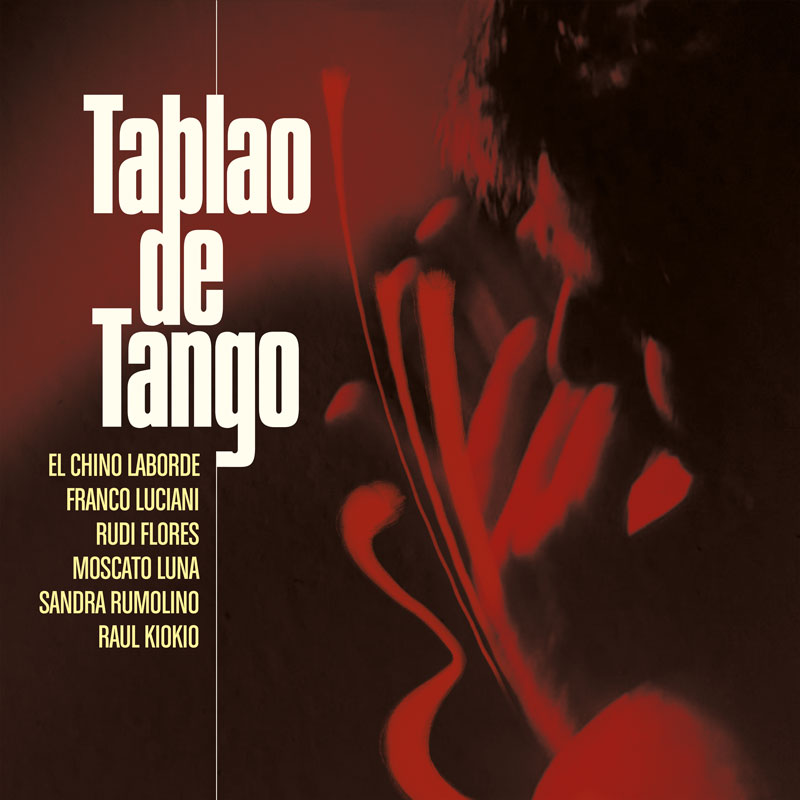Tablao de Tango – De Alcohol y Desamor (Geomuse – Caramba Records, 2024)
Tablao de Tango delves deeply and beautifully into the origins of tango, tracing its roots to late 19th-century Rio de la Plata. Departing from mainstream tango’s charm and allure, the ensemble offers a raw, gritty, port side blues vibe, echoing narratives of exile, booze, and heartbreak prevalent in Buenos Aires’ “boliches” (nightclubs) and neighborhood restaurants.
Central to the ensemble’s sound is the guitar, led by virtuoso player Rudi Flores, whose chamamé folklore influences from Corrientes sets the tone. The harmonica, performed by Franco Luciani also plays a leading role. They are supported by rhythm guitar talents like Raul Kiokio and Moscato Luna. For sure, the group embodies tango’s rustic essence before the bandoneon’s prominence.
The guitar doesn’t merely accompany. Instead, it engages in conversation with each performer, reflecting the immigrant experience and drawing inspiration from iconic figures like Gardel and Goyeneche. Improvisation is key, echoing the oral tradition of “payadores,” Argentina’s rural minstrels. Tango emerges as a shared emotional and captivating journey, expertly combining influences from traditional Argentine music to jazz.

Walter Laborde, aka “El Chino,” serves as a vocalist. Notably, he is also an actor, former footballer (soccer player), and political activist, reminiscent of Pugliese.
Musicians: Franco Luciani on harmonica; El Chino Laborde on vocals; Rudi Flores, Moscato Luna, Raul Kioko on guitars; and Sandra Rumolino on vocals.
Buy De Alcohol y Desamor.


